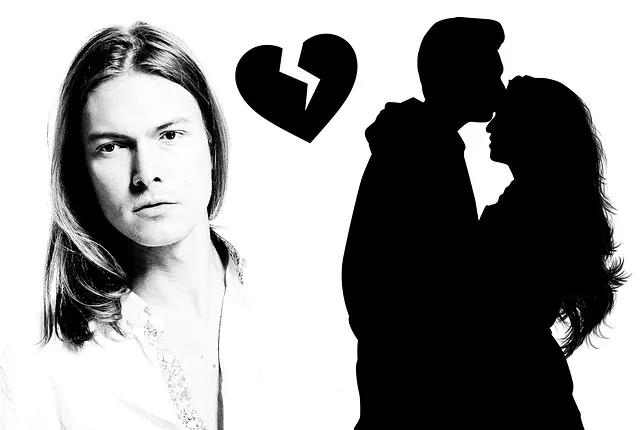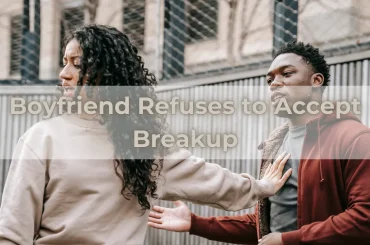A mutual breakup refers to the decision by both partners in a romantic relationship to end things together, without animosity, conflict, or one party being primarily at fault.
This type of breakup occurs when both individuals acknowledge that their relationship has reached its end and agree that parting ways is in their best interest.
While breakups are generally associated with feelings of betrayal or heartbreak, a mutual breakup often involves a sense of understanding, closure, and a shared desire for personal growth.
Table of Contents
Characteristics of a Mutual Breakup

- Shared Decision
In a mutual breakup, both partners recognize that they are no longer compatible, and they choose to end the relationship as equals. This decision can stem from a variety of factors, such as differing life goals, changing priorities, or the realization that the romantic spark is no longer present. - Respect and Communication
Unlike breakups marked by conflict or one-sided decisions, mutual breakups often involve honest conversations. Both partners are open about their feelings, needs, and concerns, creating a foundation of respect. These discussions allow each person to express their thoughts without fear of judgment or blame. - Emotional Stability
While breakups, even mutual ones, can be emotionally difficult, mutual breakups tend to involve less anger and bitterness. Both partners are generally able to manage their emotions and approach the situation with a level of maturity, understanding that parting ways is for the best. - No Major Resentments
Since both partners contribute to the decision, there is usually less room for resentment. Neither individual feels “wronged” or “abandoned.” The relationship is seen as something that had value at one point but has now run its course.
Why Do Mutual Breakups Happen?
- Growing Apart
One of the most common reasons for a mutual breakup is the simple fact that two people grow apart over time. Their interests, values, or life goals may no longer align, making it difficult to maintain a meaningful connection. This can happen gradually, with both individuals recognizing the inevitable shift in dynamics. - Different Life Stages
Relationships often end when two people find themselves at different points in their lives. One partner may want to settle down and start a family, while the other is focused on career development or personal exploration. These conflicting desires can push both people to realize that their paths are no longer compatible. - Lack of Emotional Intimacy
Emotional intimacy is the cornerstone of a healthy relationship. If both individuals feel disconnected or emotionally distant, they may mutually agree that continuing the relationship is no longer fulfilling. A loss of emotional closeness can prompt both partners to acknowledge that they’re better off apart. - Healthier Paths Ahead
Sometimes, the decision to break up stems from the recognition that both people can be happier, healthier, and more fulfilled outside of the relationship. They may realize they have more potential for personal growth if they’re no longer tied to each other.
How to Navigate a Mutual Breakup
- Be Honest and Compassionate
Even though the decision to break up is mutual, it’s still important to approach the conversation with kindness. A breakup should never be used to hurt or blame the other person. Instead, focus on expressing your feelings and concerns respectfully, while listening to the other person’s point of view. - Allow Time for Reflection
After the breakup, both individuals may need time to process the changes. This period of reflection helps each person come to terms with the decision and begin healing. Taking a break from communication can also provide space for emotional recovery. - Focus on Moving Forward
While it’s important to reflect on the relationship and understand why it ended, it’s equally vital to focus on the future. A mutual breakup often creates an opportunity for both individuals to explore new possibilities and work on personal growth, whether it’s focusing on hobbies, career, or self-care.
Conclusion
A mutual breakup, while often less tumultuous than other types of breakups, still carries its own emotional weight. It signifies the end of a shared journey and can bring about a mix of relief and sadness.
The key to navigating a mutual breakup successfully lies in open communication, mutual respect, and a willingness to move forward with personal growth. While these breakups may allow for more closure and less resentment, they still require emotional processing and time to heal.
You Might Like: What Does Self Love Look Like
Ultimately, both partners have the opportunity to embrace new paths in life, learning from the experience and using it as a foundation for healthier relationships in the future.
FAQs
Is a mutual breakup less painful than other types of breakups?
While a mutual breakup may feel less dramatic or confrontational than other types, it can still be emotionally challenging. Both individuals might still experience sadness, loss, or grief, even though the decision was made collaboratively. The key difference is that mutual breakups typically involve less resentment and more emotional closure.
Can a mutual breakup lead to friendship?
Yes, many couples who experience a mutual breakup can remain friends afterward. This is more likely when both parties are able to maintain respect and emotional maturity throughout the breakup process.
How long does it take to get over a mutual breakup?
The timeline for recovery depends on the individuals and the circumstances of the relationship. Generally, a mutual breakup may allow for a quicker emotional recovery because both people have a shared understanding of the reasons behind the breakup.







1 Comment
Pingback: White Male, Black Female Dating: Understanding the Dynamics and Breaking Down Barriers - Lovify